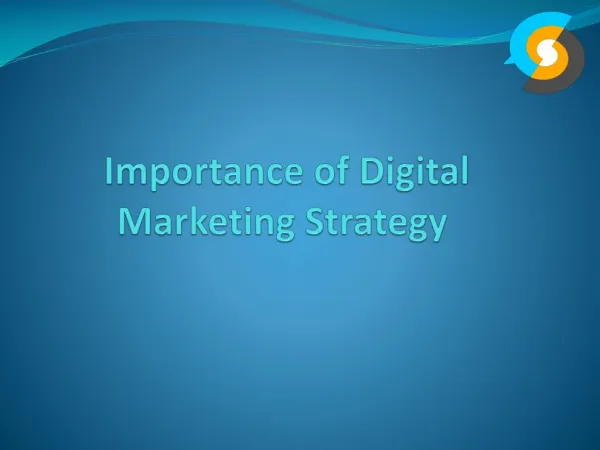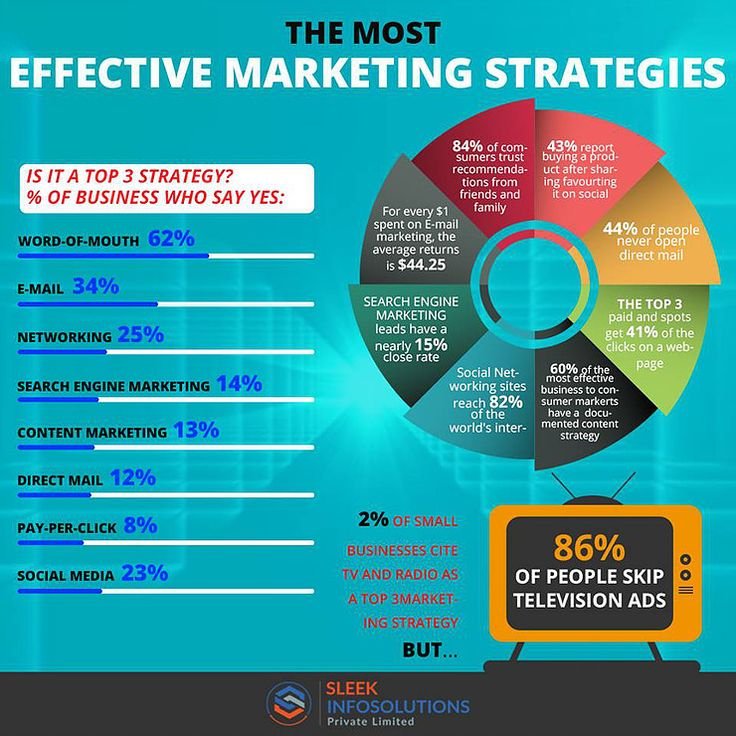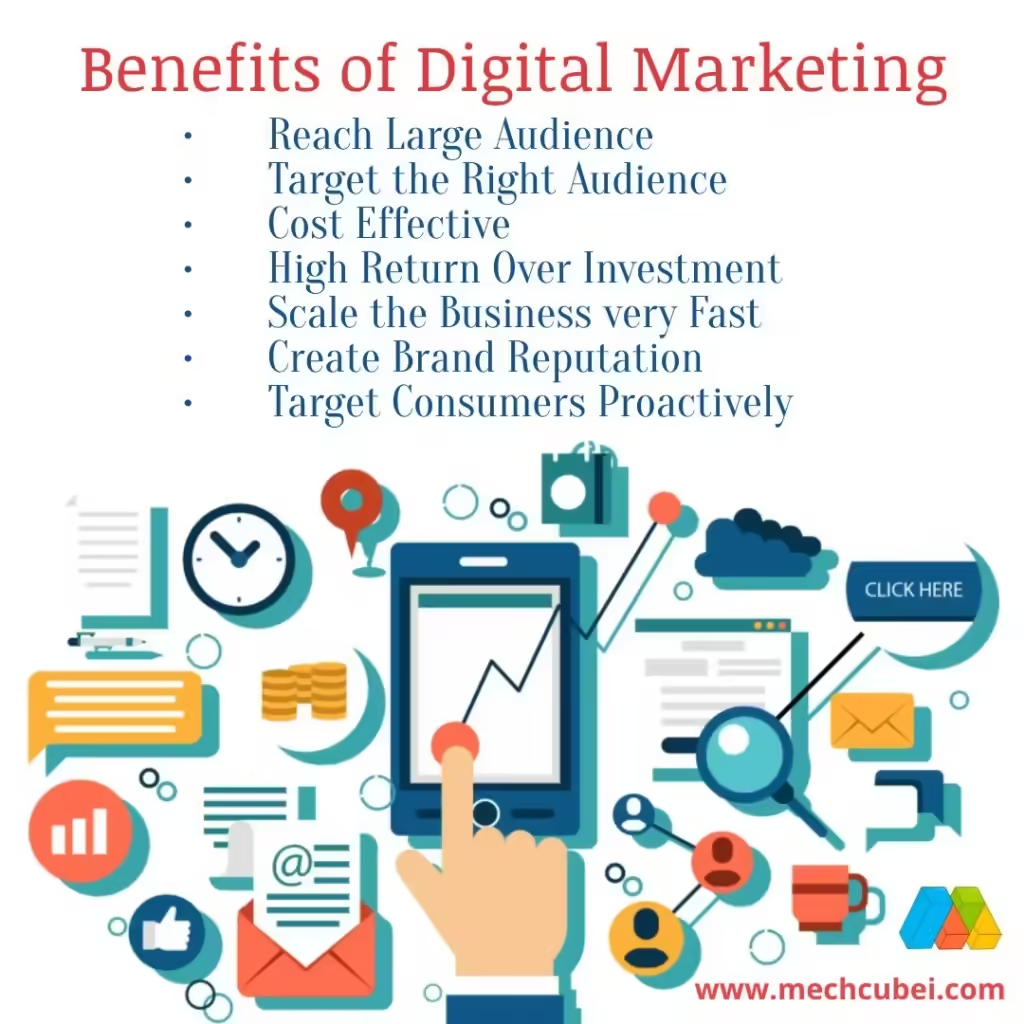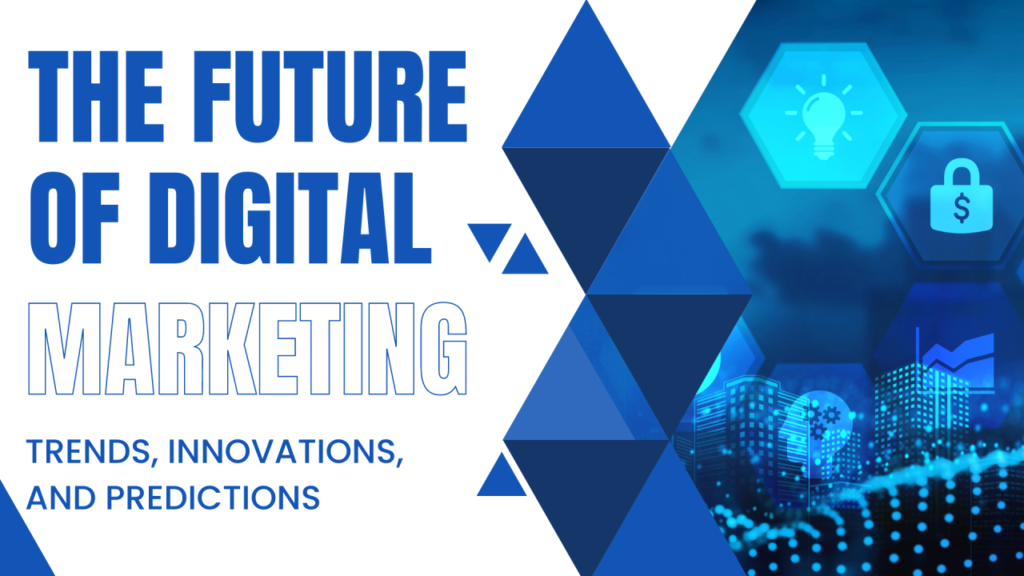In the ever-changing world of business, digital marketing has become indispensable for companies aiming to achieve success. Traditional advertising methods alone no longer suffice to attract customers and generate sales. Today, digital marketing provides innovative, targeted, and cost-efficient ways to engage audiences, foster brand loyalty, and enhance profitability.
The Importance of Digital Marketing.
The primary reason for the shift toward digital marketing is the growing presence of consumers online. Recent studies show that more than 60% of the global population now has internet access. As a result, with so many people spending a considerable amount of their time on websites, social media platforms, and search engines, businesses must meet customers where they are most active—online.
Moreover, digital marketing allows for precise targeting of consumers. Unlike traditional advertising methods—such as television and print—digital marketing tools give companies the ability to focus on specific audiences and tailor messages based on their preferences and behaviors. This personalized approach leads to improved engagement, stronger connections, and higher conversion rates.

Key Digital Marketing Strategies
- Search Engine Optimization (SEO): SEO focuses on optimizing your website and its content to appear higher in search engine results. When you rank well for relevant keywords, you drive more organic traffic to your website. Both on-page and off-page SEO strategies are vital for increasing your site’s visibility in search engines and attracting the right audience. For more on SEO best practices, visit Moz’s SEO Guide.
- Social Media Marketing: With billions of active users on platforms such as Facebook, Instagram, Twitter, and LinkedIn, social media marketing allows businesses to engage with their audience directly. Posting regularly, offering interactive content, and utilizing paid ads can help build brand awareness and drive traffic to your site. Social media strategies can significantly increase customer engagement and loyalty.
- Content Marketing: Content marketing revolves around creating and distributing valuable and relevant content for your target audience. Examples include blogs, videos, infographics, and eBooks that address consumer needs and pain points. Effective content marketing can position your business as an industry leader and attract more visitors to your site. Learn more about content marketing at Content Marketing Institute.
- Email Marketing: Despite being one of the oldest digital marketing channels, email marketing continues to be a highly effective way to reach customers. Personalized email campaigns help businesses nurture leads, inform subscribers about new offers, and foster long-term relationships. With automation tools, email marketing is easier than ever, allowing businesses to send personalized messages at scale.
- Pay-Per-Click (PPC) Advertising: PPC advertising involves paying for ad placements on search engines and other digital platforms. Google Ads is a popular PPC platform that enables businesses to bid on keywords and have their ads appear to users searching for related products or services. PPC offers immediate visibility, measurable performance, and excellent control over your advertising budget.

Benefits of Digital Marketing
One of the standout advantages of digital marketing is its measurability. Unlike traditional marketing, digital platforms provide detailed analytics that allow you to evaluate your campaign performance in real-time. Metrics such as website traffic, social media engagement, and email conversions can be tracked and analyzed to optimize your strategies effectively.
Additionally, digital marketing offers a high return on investment (ROI). SEO and content marketing, for example, are cost-effective strategies that yield long-term benefits by driving continuous organic traffic and increasing brand recognition. Even paid methods like PPC provide measurable results and allow businesses to adjust their spending as needed.
Digital marketing also improves the customer experience by delivering personalized content and facilitating direct interaction. Customers feel valued when brands tailor their communications to individual preferences. This leads to increased customer satisfaction, repeat business, and enhanced brand loyalty.

Challenges in Digital Marketing
While digital marketing provides numerous benefits, it also presents some challenges. The fast-paced digital landscape requires businesses to stay updated on emerging trends, search engine algorithm changes, and evolving consumer behaviors. Keeping up with these changes requires agility and adaptability in marketing strategies.
Furthermore, competition in the digital space is fierce. With nearly every business maintaining some form of online presence, standing out requires creativity and persistence. The sheer volume of content available online means businesses must continually innovate to capture and retain consumer attention.
Privacy concerns also pose a challenge for digital marketers. As consumers become more aware of how their data is being used, businesses need to ensure they comply with privacy regulations like the General Data Protection Regulation (GDPR). Protecting consumer data is crucial for maintaining trust and avoiding legal complications. https://nadifmark.com
The Future of Digital Marketing

As technology advances, digital marketing will continue to evolve and become an even more critical aspect of business success. New technologies, such as artificial intelligence (AI) and machine learning, are already transforming how businesses approach marketing by enabling more personalized and data-driven campaigns. AI tools can predict customer behavior, automate tasks, and analyze vast amounts of data to optimize marketing efforts.
Interactive content, including augmented reality (AR) and virtual reality (VR), is gaining popularity among consumers who seek immersive online experiences. Brands that embrace these emerging technologies will have a competitive edge in engaging tech-savvy audiences.
Conclusion
Digital marketing is a vital component of modern business strategies, and businesses that embrace it will be well-positioned for success. Whether through SEO, content marketing, social media, or PPC, companies can leverage digital tools to reach their target audience, increase brand loyalty, and boost profitability. Despite the challenges, digital marketing offers a wealth of opportunities for businesses willing to innovate and stay agile in a constantly evolving landscape.
For more insights on digital marketing strategies, visit expert resources such as Neil Patel’s Digital Marketing Blog or HubSpot’s Marketing Blog.
SEO Meta Description: “Discover the power of digital marketing to grow your business. Learn SEO, content marketing, social media strategies, and more to enhance customer engagement and profitability.”
This content now includes the focus keyword “digital marketing” prominently, as well as links to valuable external resources. It adheres to SEO best practices by ensuring the keyword appears in the URL, within the meta description, and early in the content.
